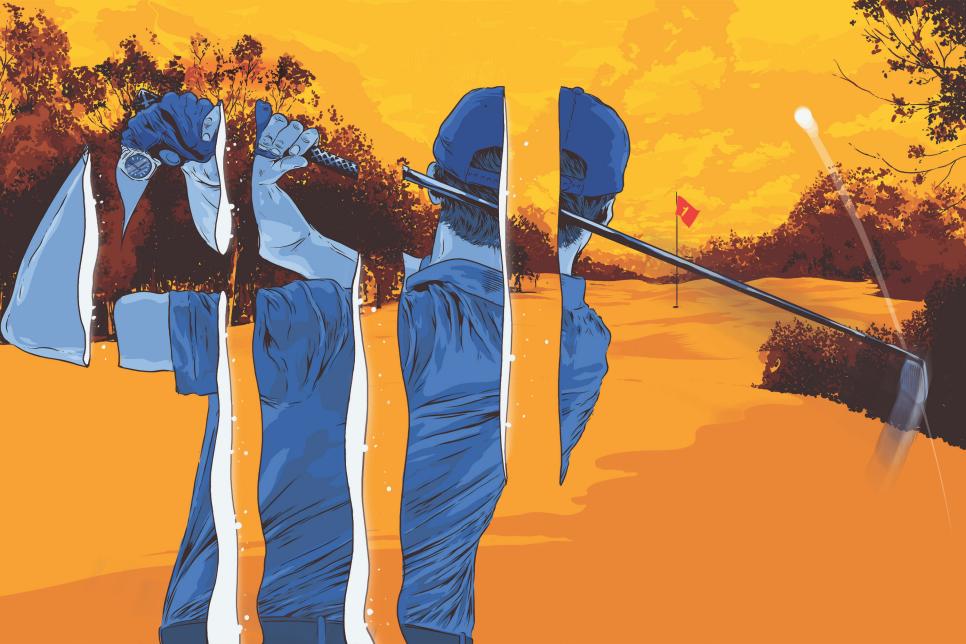With all the cash splashing around the top level of professional golf, it’s easy to forget that for most players even getting a shot at the big leagues is a long, expensive grind. Many high-quality players give up because they run out of cash before they find out if they have enough game.
That’s the problem Donnie Dotson wants to help solve with Carry, his new company built to help aspiring pros crowdfund a run at the professional tours—but with a twist. “You’ve heard the stories about players sleeping on the floor and working second jobs while running up a bunch of credit-card debt or taking sketchy loans that don’t have a lot of specifics,” Dotson says. “What if there was a way to open that process up to golf fans so they could get involved, support a player and see inside the ropes, so to speak, all at the same time?”
Carry merges features of a crowdfunding platform—read a compelling story from a “maker” and pull out a credit card in support—with some unique benefits for the investor. Back the Carry players with a minimum of $250 and you get a potential return in the form of a percentage of the player’s top-level prize money and access to investor-only events like meet-and-greets, clinics and pro-ams.
Players will receive about $45,000 per year for the next two years to fund expenses.
Think of it as fantasy golf on steroids.
When Carry was forming in 2020, Dotson’s first mission was to figure out how to navigate the complex world of securities law. He wanted to be able to offer regular fans—not just investment pros and other “qualified investors”—that potential slice of an aspiring tour star’s future earnings in a format that was good for the player and point-and-click easy to navigate for the consumer. “COVID was happening, and you had all these leagues asking, How are we going to sustain ourselves?” Dotson says. “It started a big push toward fan engagement and what the future might look like.”
Dotson has no shortage of experience navigating complex environments. He served in Iraq as a Marine before getting his degree in Arabic from the University of South Florida. After a stint as a CIA-trained operations officer, he earned an MBA at Duke and worked for Goldman Sachs in private-wealth management. A stint with sport-technology company Sport-radar got Dotson thinking about ways to modernize a professional golf path that had mostly remained unchanged since the 1950s. “If you weren’t from an affluent background where somebody could just bankroll it for you, it’s always been really hard to even get a shot,” Dotson says. “I’d hear the same things in conversations over and over—I’ve got the game, I’m motivated and I’m putting in the time. It just costs a lot of money, and I don’t have it.”
Dotson interviewed hundreds of those ambitious players to come up with a collection with the playing pedigree and compelling personal stories that would make an investor want to pay up and stay engaged over multiple years. “We wanted to make this as much about the experience as the financial piece,” Dotson says. “Let’s face it: If you’re investing in golfers purely from a financial standpoint, there’s other places you’d put your money if you cared about return only. We wanted to touch fans of the game who largely have been blind to the lower levels of competitive golf and get them excited about following the climb.”
Carry selected a list of 10 golfers for its initial public “venture fund,” which launched in March. The diverse group includes former college stars like Kristen Gillman, an All-American at Alabama who won two U.S. Amateurs. “If a player had Kristen’s résumé on the men’s side, backers would be falling all over themselves to sponsor her,” Dotson says. “Why is she having to substitute teach during the off-season just so she can have enough money to start off her year?” Another selection, Tyler Collett, got into the Honda Classic in February by virtue of being the South Florida PGA Section Player of the Year. He was among the leaders after shooting a first-round 68 but followed with a 76 and missed the cut.
Shares in Carry’s fund cost $50 and have a five-share minimum purchase requirement. If the fund fully subscribes, those 10 players will each receive approximately $45,000 per year for the next two years to fund expenses like travel, entry fees and coaching. The terms of each player’s contract vary, but they’re generally committed to return 15 percent of any prize money they win in tournaments with a purse of at least $1.5 million—which means PGA Tour, Korn Ferry, DP World Tour, LPGA and some Asian Tour events. Carry also gets a 15 percent revenue share from any endorsement deals that generate from the partnership.
A test group Carry funded last year with private investment showed promising proof of concept: Not only did that player group earn a win and a handful of top-10s, but the networking between players and investors at events like an investor retreat at Pinehurst was a hit. “The reality is that not everyone is going to make it, or, at least, they’re not going to have the success they dreamed,” Dotson says. “But at least they can say, ‘I had the funding to go out and compete, and I had a community of people supporting me win, lose or draw.’”



